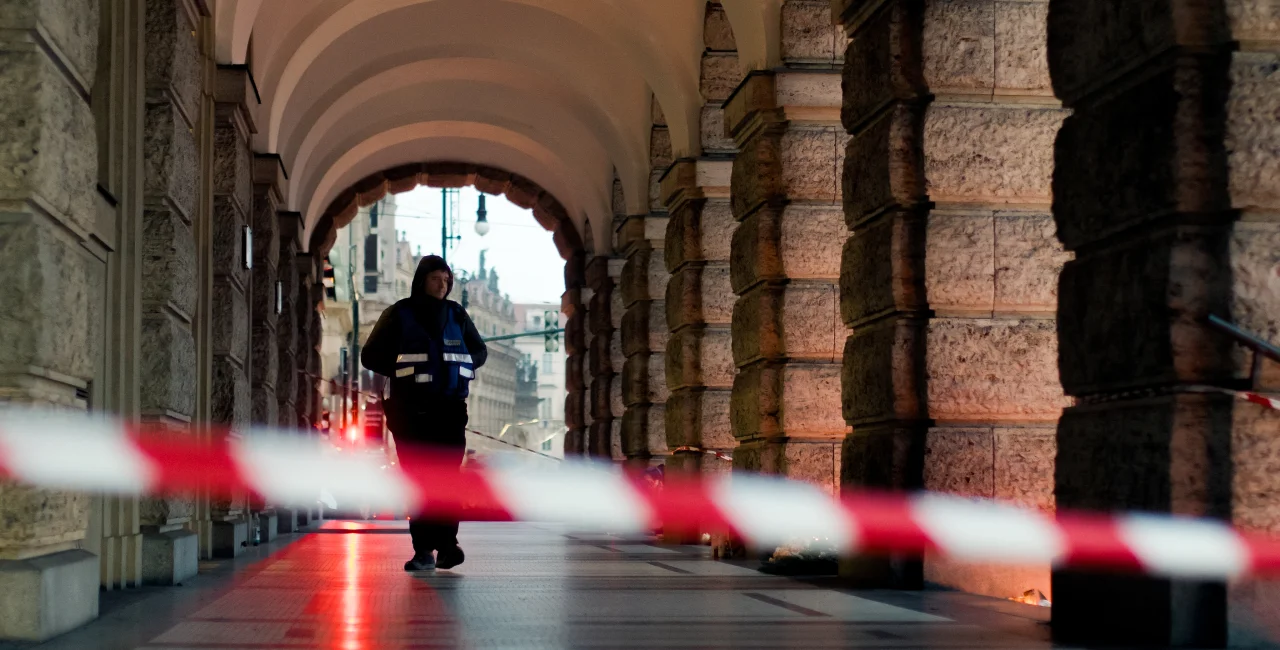Exactly six months after Prague’s deadly shooting at Charles University that claimed 14 innocent lives, more details have emerged regarding the killer and police response to the deadliest mass killing in the Czech Republic.
No diagnosed mental disorder
At a meeting of the Chamber of Deputies’ Security Committee, state representative Jana Murínová commented that the shooter – a 24-year-old master’s student at the university’s Faculty of Arts – “suffered from feelings of injustice and resentment, but did not act under the influence of a serious mental disorder.”
According to Murínová, he met the criteria for a mixed personality disorder, but did not have a psychotic nature.
"The perpetrator felt pushed away and unrecognized by people, leading to feelings of isolation, injustice, and resentment. This, combined with a desire for revenge, led to the tragic events," Murínová stated, quoting expert conclusions from psychiatrists.
The report also revealed that the perpetrator had visited a psychiatrist and psychologist several times in the past, but did not disclose this information to his general practitioner when obtaining a firearms license.
A loner with emotional detachment
The investigation revealed the perpetrator's gradual self-radicalization and fascination with violence, leading to a toxic fixation on murderous activity. According to Murínová, the forensic experts analyzed the perpetrator's computer, cell phone, notes, and records, including internet search history and his interests.
"He had a schizoid personality, showing emotional detachment and a preference for solitude. He was emotionally flat and had difficulty expressing his feelings," Murínová quoted the psychologist.
Jan Vevera, head of the Psychiatric Clinic at the University Hospital in Pilsen, told Czech news outlet Deník N that having a schizoid personality does not automatically make someone aggressive. "In order for aggression to arise, deep feelings of dissatisfaction and anger at society must be added, which is not a part of schizoid disorder," he added.
A desire to be recognized
The investigation also revealed that the man had a hidden desire for recognition. He lived in his own inner world, increasingly fascinated by violence and “hard and bizarre pornography,” which he viewed.
According to the prosecutor, there was no evidence of the perpetrator being a victim of violence in the past, both in his family and close surroundings.
The perpetrator's father – another victim of the shooter, who took his father’s life just hours before the Prague killing spree – was considered a gentle and accommodating person, while his mother was more authoritative.
According to the investigation, the perpetrator was dealing with suicidal thoughts but later modified them to homicidal thoughts. He had no prior history of a diagnosis of mental illness, but was receiving psychiatric treatment in the months before the attack.
"Everything points to the fact that he carefully planned and executed these shootings. He knew what he was doing," a public prosecutor stated.
Police response criticized
According to the General Inspection of the Security Forces (GIBS), police entered the Faculty of Arts building on Jan Palach Square just one minute after the perpetrator had set foot inside (just before 1:30 p.m.; the shooting started around 3 p.m.).
Police had received text messages from the killer’s mother and his friend that he was planning to take his own life, and visited the university accordingly, as he was due to have classes on that day.
However, police were unable to locate the killer, despite talking to two vice deans who were on site. They searched through the faculty library and toilets, and also had photographs of the suspect, presenting it to people and asking if they had seen the killer. They were working with the assumption that he was going to commit suicide, rather than kill multiple people.
GIBS also noted that the police’s response to the incident – while fast – lacked coordination. An evacuation from the building started too late, and tracking of the victim’s cell phone could also have been more accurate. GIBS also said that police officers on site before the shooting failed to speak directly to the faculty management after talking to the vice deans.
“We see room for speeding up and streamlining police activities in such events," the director of the inspection, Vít Hendrych, summarized during the Security Committee’s meeting.













 Reading time: 3 minutes
Reading time: 3 minutes 



























